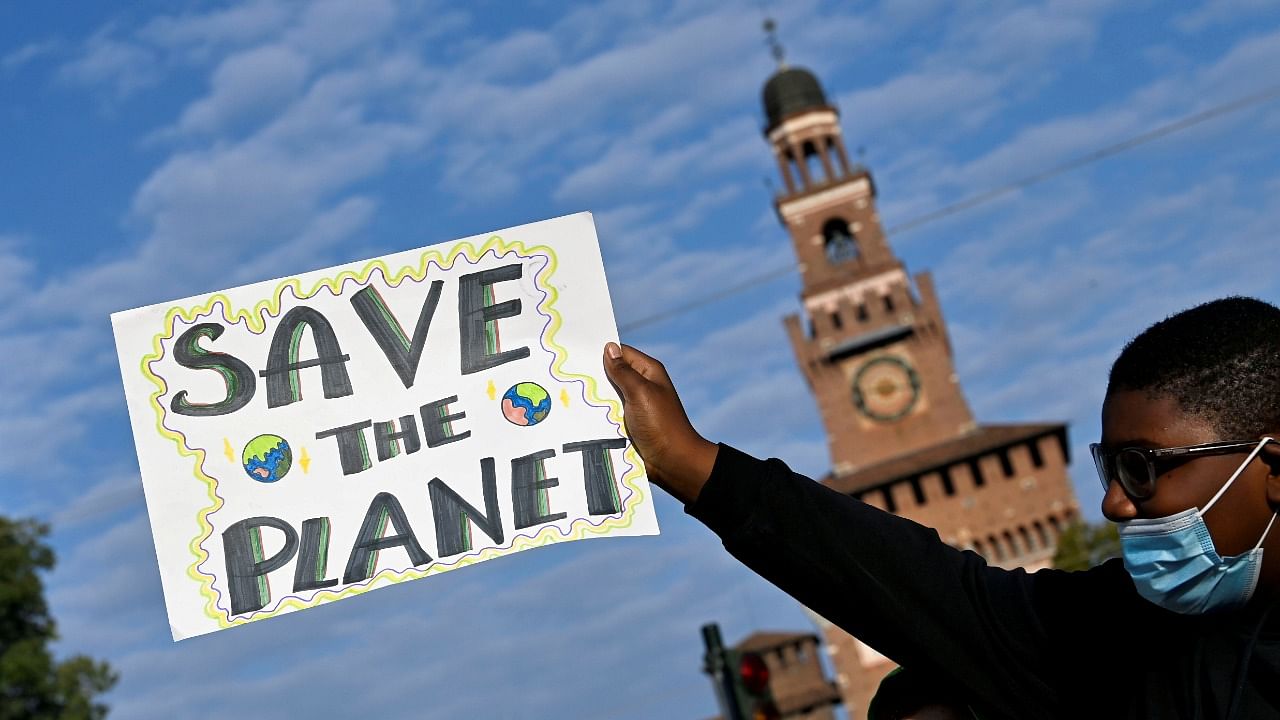
Only few remain in denial of global warming (GW) leading to climate change (CC). At the other end of the scale, only few view GW-CC as an impending disaster. Leaders of societies and nations are among the bulk of in-betweens, and their understanding of GW-CC mostly remains limited.
The Davos development dogma
The focus of attention and planning among world leaders is development by economic growth. This dogma is reaffirmed annually at the Davos World Economic Forum, amidst insincere commitments to SDGs, carbon emission reduction, mitigation measures to minimise GW-CC effects, and adaptation to GW-CC conditions.
The larger view of global changes on a timescale to which most forms of life will be unable to adapt biologically is expressed unvarnished by IPCC. These science-backed warnings are drowned by the noisy, aggressive march of the industrialisation behemoth.
The focus on economic growth keeps people in the peripheral field of attention and intention. This tunnel-vision of the Davos dogma is a kind of social-economic glaucoma. It fails to detect that:
the complex social-economic-political structures of human societies are part of, and dependent upon, the global ecosystem; promoting the economic growth dogma is responsible for GW-CC; human societies are engaged in conflicts within and between themselves because of the downstream effects of the dogma.
The tunnel-vision of leaders of some countries which are committed to reducing carbon emissions is evidenced by their aggressively promoting industrial expansion by flagrantly flouting or circumventing social and environmental laws. This impacts people at the low-end of the socio-economic spectrum, which is the vast majority of the population.
Economic growth through industrial activities inside forest areas, such as mining, constructing roads, pipelines, electricity transmission lines and buildings, tourism, etc., is the double-whammy of ‘development’, because industrial activities accelerate GW-CC, and forests, which slow GW-CC, are destroyed.
Industrial expansion requires finance. When finance is not available, governments hold ‘Global Investors Meets’ to attract investors. They are assured land, power, water, tax-benefits, etc., to enable them to finance, or establish and operate industries.
This, again, ultimately is at the cost of the health, welfare and education of people at the low-end of the socio-economic spectrum.
People and economic growth
When people who are adversely affected by loss of land, habitat and livelihood due to industrial expansion speak, governments view it as unacceptable resistance to ‘development’. These conflicts of interest between people and the State are rarely, if ever, addressed by political means, and have led to: # social unrest and conflicts within and between societies; # imposition of State force upon people (FIRs, police action, military deployment under AFSPA, etc.) to suppress protest and dissent; and, # judicial system overload due to litigation, with state or central governments as one of the litigants.
The nature of economies
Every economy is comprised of several sectors of economic activity. The major sectors are industrialised mining-quarrying, oil-energy production, transportation, banking-finance, commerce-trade, manufacturing-production, agriculture, services, etc.
These sectors are socio-economic structures, which are dependent upon the environment. In a global perspective, economies, along with their industrial sectors, are all subsystems of the earth’s complex ecosystem.
Economies function based on continuous year-on-year consumption, and irreversible depletion of natural, environmental-ecological and social resources. This results in corresponding year-on-year increase in environmental pollution, and resource-base degradation of land, ocean and atmospheric air. The cumulative effect of air pollution by GHGs over the decades is the cause for GW-CC.
Earth’s ecosystem
In the timespan of just one century, gaseous wastes, especially CO2 – 36.4 billion tonnes in 2021 alone – and methane, have upset the millennia-old dynamic global balance between incoming solar heat and heat re-radiated into space.
This has resulted in unprecedented increase in land surface and ocean temperatures and raised the average global temperature.
Global Warming has affected natural geosystems, such as thermo-haline ocean currents, air currents and seasonal circulations in the atmosphere. These have led to shifts in weather and climate, affecting various forms of terrestrial and oceanic vegetative and animal life.
Earth’s ecosystem is simultaneously the (depleting) source of materials and resources for economic growth, and the (overflowing) sink for disposal of wastes of industrial activity and the exhausted end-products of every industry.
Davos-style economics
The economic growth dogma is based upon increasingly drawing resources from the environment, producing more industrial goods and services, and encouraging more consumption. The characteristics of economic growth are: #it is perpetual and consumptive; #it is centred on science and technology as the instruments; and, #national economies and the international economy are debt-based, because money supply has to increase for economic transactions.
It is not difficult to understand that such economic growth is devouring its own environmental/ecological resource base (natural capital), and disastrously impinging on the earth’s ecosystem.
Climate emergency
The United Nations, serious writers and even social media users are using the term “climate emergency”. As a global emergency transcending national borders, it is the defining crisis of our time. GW-CC are manifesting as extreme events like severe storms causing floods and landslides, droughts, uncontrollable wildfires burning down vast swathes of forest on all continents, desertification, and polar ice melt.
The rise in sea level is not readily apparent, but scientists predict abrupt rise in sea levels, especially following the impending collapse of the Antarctic Thwaites glacier, and disappearance of large volumes of Arctic ice. Sea-level rise will impact coastal communities worldwide, and force large-scale human migrations within and between nations. This will affect all nations and societies, by stressing resources and initiating or intensifying social unrest and conflicts, and create geopolitical problems.
The unrelenting march of the Davos dogma is transforming the world in unintended ways. We must hope that before it is too late, world leaders will gain the understanding that GW-CC is the consequence of unremitting, unthinking pursuit of development by economic growth. Are we already in the midst of a cascading collapse of inter-connected social, economic and ecological systems?